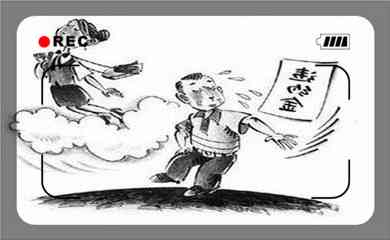信用卡逾期2年还能起诉吗怎么办理欠款的问题?
Title: Can You Still Be Sued for Credit Card Debt After 2 Years? How to Handle Overdue Payments
Introduction:
Credit card debt can often spiral out of control, leading to missed payments and, in some cases, even extended periods of delinquency. If you find yourself in a situation where your credit card debt has been overdue for 2 years, you may be wondering if the creditor can still sue you for the debt. This article will discuss the possibility of being sued for credit card debt after 2 years and provide guidance on how to handle overdue payments.
1. Legal Liability for Overdue Credit Card Debt:
Creditors have a limited time to file a lawsuit to recover overdue debts, which is determined by the local jurisdiction's statute of limitations. This period may vary from country to country or even from state to state. If the statute of limitations for your jurisdiction has not yet expired after 2 years, the creditor may still have the right to sue you for the outstanding debt.
2. Actions to Take for Handling Overdue Credit Card Debt:
a. Assess your financial situation: Start by evaluating your current financial circumstances. Understand your income, expenses, and any other obligations you have. This will help you determine what you can afford to pay towards your overdue debt.

b. Communicate with the creditor: Open up lines of communication with your creditor. Explain your situation honestly and express your willingness to resolve the debt. Some creditors may be open to negotiating a repayment plan or settling for a reduced amount.
c. Seek professional advice: If you feel overwhelmed or unsure about handling the situation independently, consider seeking advice from a credit counseling agency or a financial advisor. They can provide guidance on debt management strategies or negotiate with the creditor on your behalf.
d. Avoid taking on more debt: While dealing with overdue credit card debt, it is crucial to avoid accumulating further debt. Focus on making timely payments for your current obligations to maintain a healthy financial standing.
e. Consider debt consolidation or negotiation: If you have multiple credit card debts, consolidating them into a single loan with a lower interest rate can make repayment more manageable. Alternatively, you can explore debt negotiation, where you work with a professional negotiator to reach an agreement with your creditors for a reduced payoff amount.
f. Consult an attorney if sued: If you are sued for your overdue credit card debt, consider seeking legal advice from an attorney who specializes in debt collection. They can help you understand your rights, defend your case if licable, or negotiate a settlement with the creditor.
Conclusion:
While the possibility of being sued for overdue credit card debt after 2 years exists, it is crucial to remember that each jurisdiction has its own statute of limitations. To handle overdue payments, assess your financial situation, communicate with your creditor, seek professional advice if necessary, and consider debt consolidation or negotiation. It is prudent to consult an attorney if you are sued for the debt. Remember, taking proactive steps to address your overdue credit card debt can help you regain financial stability and avoid further legal complications.






